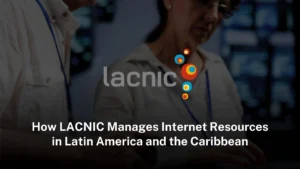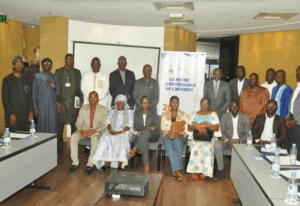APNIC (Asia Pacific Network Information Centre) events play a vital role for network professionals throughout the Asia-Pacific region, offering significant opportunities for learning, collaboration, and engagement in policy matters. Given the diverse and rapidly evolving nature of the Asia-Pacific, where network requirements and infrastructure challenges differ greatly, APNIC events act as a conduit for knowledge exchange, technical education, and the resolution of shared concerns. This discussion will delve into the nature of APNIC events, their importance to network professionals in the area, and their contributions to fostering a more secure, resilient, and interconnected internet.
What Are APNIC Events?
APNIC events, conducted in both physical and virtual formats, serve as organized assemblies that unite internet professionals, network operators, IT managers, and policy-makers from the Asia-Pacific region. These gatherings generally feature conferences, workshops, policy dialogues, and technical training sessions addressing a wide range of subjects pertinent to internet operations. Key topics often encompass IP address management, the deployment of IPv6, cybersecurity, DNS operations, and routing. Additionally, APNIC events facilitate a collaborative policy-making process, allowing participants to engage in discussions and vote on policy modifications that influence the region’s IP address management and internet infrastructure.
Why Are APNIC Events Crucial?
- Technical Knowledge and Skill Development: One of the primary justifications for the significance of APNIC events is the chance for network professionals to acquire advanced technical competencies. The region experiences diverse stages of internet infrastructure development, necessitating that professionals remain informed about the most recent trends and methodologies, particularly in domains such as IPv6 transition, routing security, and DDoS mitigation. APNIC offers training sessions and practical workshops that assist participants in refining their skills and knowledge, thereby empowering them to apply best practices within their respective networks.
- Policy Participation and Community Representation: APNIC serves as one of the five Regional Internet Registries (RIRs) tasked with the allocation of IP addresses, specifically for the Asia-Pacific region. The events organized by APNIC provide network professionals with an opportunity to express their views and shape policies that affect IP address management, security, and routing within the area. This engagement is essential, given the diverse economies of the Asia-Pacific, each presenting distinct internet requirements and challenges. Involvement in APNIC’s policy discussions is vital to ensure that decisions reflect the region’s diverse needs, thereby fostering equitable and efficient resource management.
- Collaboration and Community Building: In an area characterized by internet connectivity that frequently crosses national borders and diverse regulatory environments, collaboration is essential. APNIC events provide opportunities for network professionals to cultivate relationships, exchange best practices, and address common challenges. These gatherings play a crucial role in coordinating cybersecurity initiatives and setting standards for cross-border data transfer, making the networking and knowledge-sharing opportunities offered by APNIC events highly valuable.
How APNIC Events Benefit Network Professionals
- Hands-On Learning and Certification: APNIC events feature practical workshops designed to enable participants to apply the skills they acquire in a structured setting. These sessions cover a range of topics, including the configuration of IPv6 networks and the implementation of RPKI for enhancing routing security, providing attendees with hands-on experience that can be directly utilized in their professional roles. Additionally, numerous workshops offer certifications, which are significant credentials for network professionals aiming to advance their careers.
- Engagement in Real-World Policy Development: At APNIC events, networking professionals are afforded the chance to influence internet policies that affect the entire region. The APNIC policy process is characterized by its openness and transparency, enabling participants to suggest and vote on modifications to policies. This approach guarantees that individuals actively involved in the field can provide valuable insights and feedback, thereby facilitating the development of policies that respond to actual needs and issues. Participation in the policy-making process empowers professionals to have a say in the future of internet governance, while also cultivating a sense of responsibility and ownership within the community.
- Access to Global and Regional Insights: APNIC events frequently include speakers and participants from international organizations, including ICANN, the Internet Society, and various Regional Internet Registries (RIRs). This international viewpoint enables professionals in the Asia-Pacific region to comprehend the potential impacts of global trends and challenges on their local context. For instance, conversations surrounding global cybersecurity threats, the depletion of IPv4 addresses, and the transition to IPv6 provide attendees with valuable insights on how to effectively prepare for analogous challenges in their own environments, thereby enhancing the resilience and adaptability of their networks.
Conclusion
APNIC events are essential in equipping network professionals in the Asia-Pacific region with the necessary tools, knowledge, and support to effectively manage and enhance their networks. By offering technical training, promoting an inclusive policy-making atmosphere, and facilitating cross-border collaboration, these events significantly contribute to a more secure, stable, and interconnected internet ecosystem throughout the region. For network professionals in Asia-Pacific, participation in APNIC events represents a worthwhile investment in remaining at the cutting edge of internet technology, governance, and collaboration.





I discovered your blog web site on google and test a couple of of your early posts. Continue to maintain up the excellent operate. I just extra up your RSS feed to my MSN Information Reader. Looking for ahead to studying extra from you afterward!…